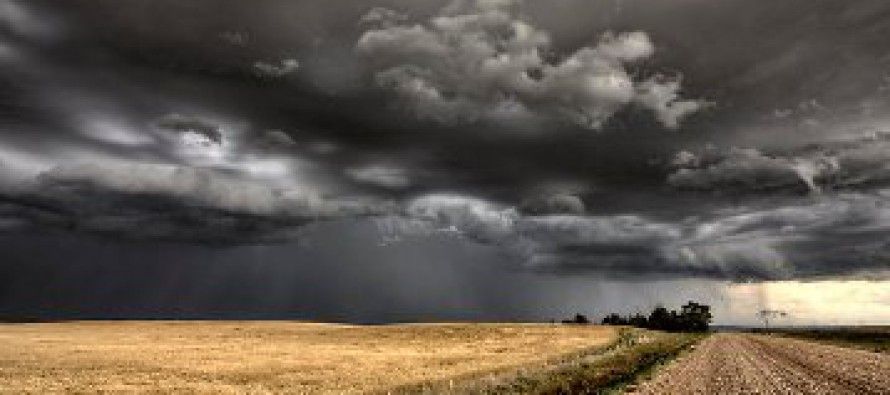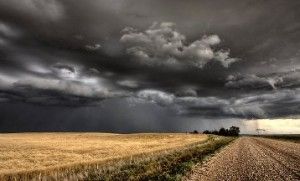GOP can’t find bridge for troubled water bill

 The fate of a bipartisan drought bill passed Tuesday by the U.S. House of Representatives is as cloudy as California skies in recent days. The bill was crafted by GOP congressmen with Sen. Dianne Feinstein, D-Calif., although she opposed the final version.
The fate of a bipartisan drought bill passed Tuesday by the U.S. House of Representatives is as cloudy as California skies in recent days. The bill was crafted by GOP congressmen with Sen. Dianne Feinstein, D-Calif., although she opposed the final version.
But even if the bill didn’t face certain drowning in the U.S. Senate, President Obama has pledged to veto it. So drought relief floats into 2015, when Republicans will add to their control of the House the control of the Senate.
What happened? Acrimony between Democrats and Republicans in the House poisoned the well in the Senate. Every California Democrat in the House whose district includes parts of the Delta region voted to reject the bill. As the Sacramento Bee reported, “These Democrats say they were cut out from the negotiations. At one point, Rep. Jared Huffman, D-Calif., said House Republicans refused to brief California Democratic Sen. Barbara Boxer when she insisted on inviting House Democrats.”
Behind closed doors earlier this year, Feinstein secretly had carried out painstaking negotiations with California’s Republican delegation to the House of Representatives. Last month, Democrats and environmental activists pushed Feinstein to abandon her own water bill.
Last-minute labors
Despite the problems in the Senate and over the objections of environmentalists, California Republicans introduced the California Emergency Drought Relief Act of 2014. It was sponsored by Rep. David Valadao of Hanford, who was joined by Rep. Doug LaMalfa of Redding, Rep. Ken Calvert of Riverside and Majority Leader Kevin McCarthy of Bakersfield. McCarthy has made the bill a top priority as the 2014 legislative session hastened to a close.
The bill cleared the minimum bar for bipartisanship by including Rep. Jim Costa, D-Fresno, among its co-sponsors.
But Feinstein’s troubles with Democrats drowned out bipartisanship. Sen. Barbara Boxer, D-Calif., has forcefully condemned the new bill. According to KPCC:
“LaMalfa says the legislation reflects agreements on particular issues they reached with Senator Feinstein.
“‘Some of our other Senators are standing in the way of that,’ says LaMalfa, a reference to Boxer, who heads the Senate environment committee.”
But Feinstein will be expected by Democrats to use her power in the Senate to sink the House bill — even though it includes language from the draft legislation she negotiated with the California Republicans in the first place.
Hoping to navigate the controversy without further embarrassment, Feinstein was restrained in her comments. “It’s my hope that we’ll reach agreement on legislation that can pass both the House and the Senate and enact a bill that moves water to Californians suffering from the drought and helps all of the state while not waiving environmental protections,” she said, according to the Bee.
As the San Francisco Chronicle observed, however, Feinstein made clear she favored acting quickly because of her diminished clout in next year’s Congress, when Democrats switch from majority to minority status.
Remarkably, Sen. Boxer had co-sponsored with Feinstein the Senate bill that became the basis of Feinstein’s negotiations with California’s House Republicans. But environmentalists and other liberal activists will find it harder to criticize Feinstein or Boxer as their legislative influence fades.
Troubled waters
For Republicans, that has put drought relief on the agenda for 2015.
Obama likely will be inclined to veto a bill next year as well. But he will face an emboldened Republican majority and a weakened delegation of California Democrats.
He also will have much on his agenda in other areas over which to battle Republicans: the budget, taxes, immigration, wars and crime.
As President Clinton showed when Republicans took control of Congress in 1995, sometimes it’s easier for a president to cut deals with the other party when it’s in the majority, than to deal with intramural struggles within his own party.
Meanwhile, 3,000 miles from Washington, despite the recent rains, California still needs drought relief.
Related Articles
Brown debuts big budget revision
Gov. Jerry Brown has unveiled the highly-anticipated revision to his annual state budget, teeing up final spending negotiations in Sacramento
Elizabeth Emken: ‘It’s time to un-ring the Obamacare bell’
Note: This is the second in a series of profiles of the four major candidates for the crucial 7th Congressional
CSU ‘student success fees’ an obnoxious surcharge
California lawmakers of both parties have long been upset that UC and CSU leaders look to raise tuition as option




